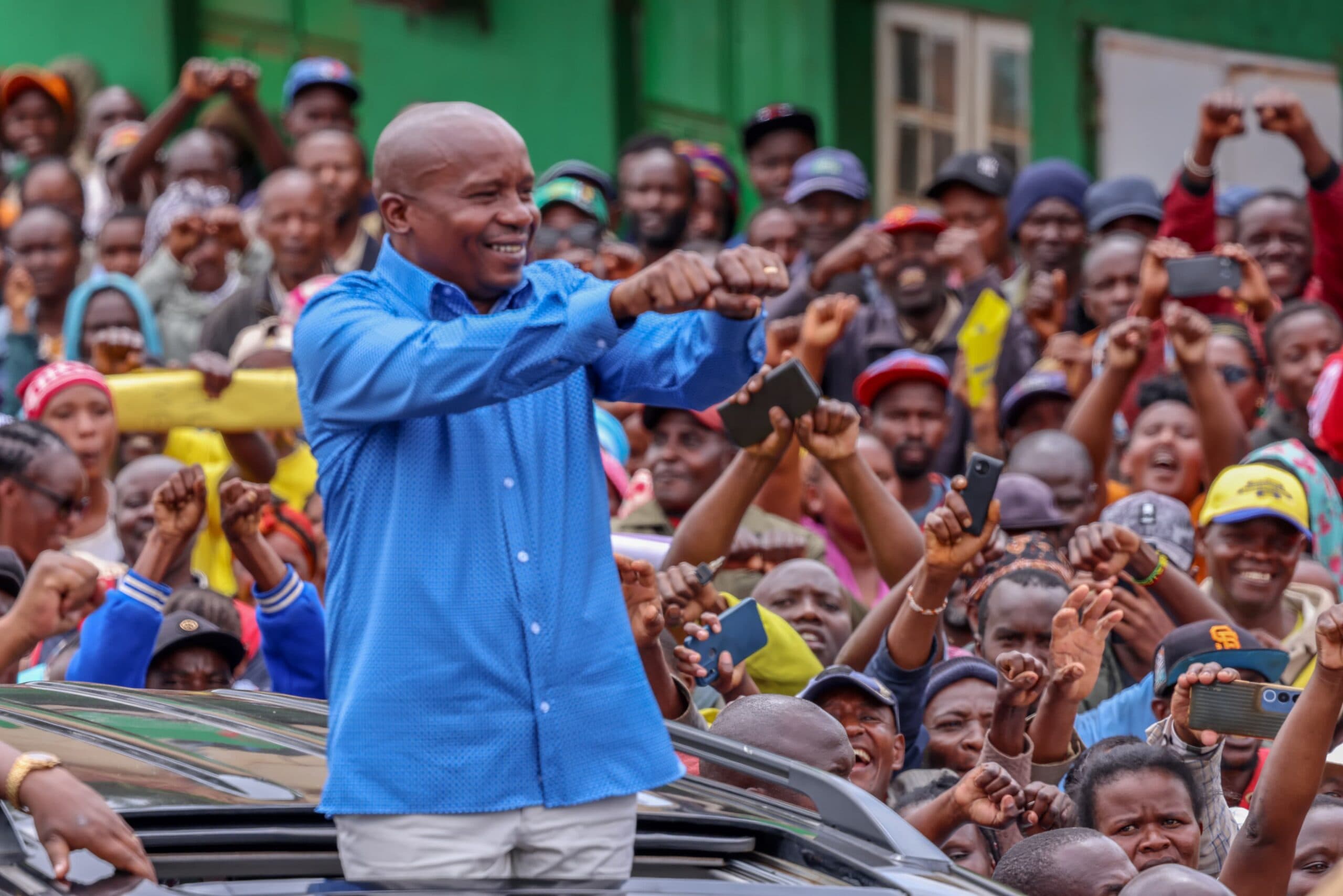We're loading the full news article for you. This includes the article content, images, author information, and related articles.
The proposed legislation is central to the Kenya Kwanza administration's ambitious plan to overhaul the nation's transport, energy, and agricultural sectors, aiming to fast-track development without increasing public debt.

MACHAKOS, Kenya – Deputy President Kithure Kindiki on Friday, November 14, 2025, made a direct appeal to Members of Parliament to support the forthcoming Infrastructure Fund Bill, framing it as the cornerstone of the government's strategy to deliver transformative, large-scale development projects across Kenya. Speaking in Machakos County during President William Ruto’s development tour of the Ukambani region, Kindiki asserted that the fund is essential for achieving the administration's ambitious national goals.
The proposed fund is designed to mobilize an estimated KSh 4 trillion to KSh 4.5 trillion to finance a sweeping overhaul of the country's infrastructure. According to government announcements, the initiative targets the construction of an additional 10,000 kilometers of tarmac roads, the generation of 10,000 megawatts (MW) of electricity, and the development of 50 mega-dams. These dams are intended to bring two million acres of land under irrigation, a critical step towards enhancing food security and reducing Kenya's reliance on food imports, which President Ruto recently stated costs the nation over KSh 500 billion annually.
“I’m requesting our lawmakers to support the Infrastructure Fund Bill when it is brought to Parliament for adoption so that we actualize these infrastructure projects and take our country forward and move it from third to first world,” Kindiki stated, emphasizing the bill's role in accelerating Kenya's long-term development agenda.
The establishment of the National Infrastructure Fund signals a significant strategic shift in the government's approach to financing capital-intensive projects. President Ruto has indicated that the fund will pool resources from a combination of sources, including the national budget, proceeds from the privatization of state-owned enterprises, and private sector investment through Public-Private Partnerships (PPPs). This model is intended to reduce the nation's dependence on external borrowing and curb the growth of public debt, which stood at KSh 11.5 trillion as of May 2025, according to the Central Bank of Kenya.
The government has already taken legislative steps to enable this strategy, including the enactment of a new privatization law. The sale of shares in state-owned entities like the Kenya Pipeline Company is expected to raise significant capital for the fund. This approach aligns with the administration's broader goal of leveraging private sector efficiency and capital to bridge an annual infrastructure funding gap estimated at KSh 336 billion.
The Deputy President's appeal was made during a multi-day presidential tour of the Ukambani region, historically an opposition stronghold. The tour has seen the launch and inspection of several local projects, including the 22km Kivandini-Miseleni Road in Mwala Constituency, as the administration seeks to demonstrate its commitment to equitable development across all regions, regardless of political affiliation. “As the government we will develop the whole country,” Kindiki assured residents, promising that the Ukambani region would not be left behind.
These infrastructure ambitions are deeply rooted in Kenya's long-term development blueprint, Vision 2030, which aims to transform the nation into a newly industrializing, middle-income country. The projects also form a core component of the ruling Kenya Kwanza coalition's Bottom-Up Economic Transformation Agenda (BETA), which prioritizes investments in foundational sectors like agriculture and infrastructure to stimulate widespread economic growth.
Despite the government's optimistic vision, the proposed Infrastructure Fund has already encountered skepticism and opposition. Some lawmakers and political figures have questioned the necessity of a new fund, arguing that the primary issue is not a lack of money but a lack of integrity and discipline in managing existing public funds. Critics have expressed concerns that the initiative could lead to an increased tax burden on Kenyans, although President Ruto has maintained that the transformation would not require new taxes but would instead rely on strategic partnerships and prudent resource management.
As the bill is prepared for Parliament, the administration faces the challenge of building a broad political consensus. Its success will depend on its ability to convince legislators and the public of the fund's transparency, viability, and necessity for securing Kenya's economic future. The debate in Parliament is expected to be intense, scrutinizing the specific funding mechanisms, project timelines, and safeguards against corruption. The outcome will be a critical determinant of Kenya's development trajectory for the next decade.
Keep the conversation in one place—threads here stay linked to the story and in the forums.
Sign in to start a discussion
Start a conversation about this story and keep it linked here.
Other hot threads
E-sports and Gaming Community in Kenya
Active 9 months ago
The Role of Technology in Modern Agriculture (AgriTech)
Active 9 months ago
Popular Recreational Activities Across Counties
Active 9 months ago
Investing in Youth Sports Development Programs
Active 9 months ago